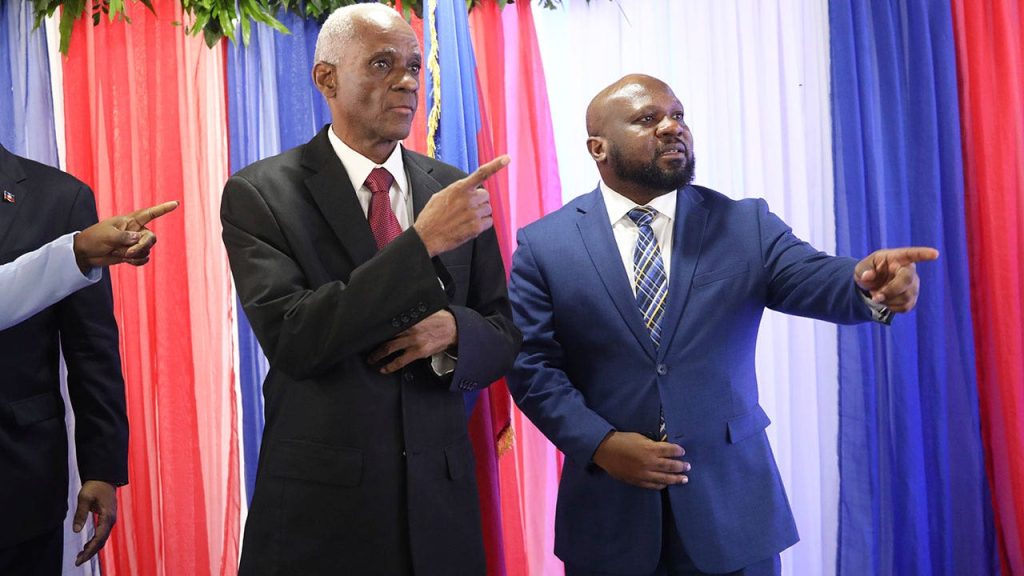The transitional council in Haiti, responsible for selecting new leaders, has made significant changes to its operational structure. Instead of having a single council president, four veteran politicians will now rotate leadership every five months. The council will also require five members for a majority decision, instead of four, out of a total of nine members, with seven having voting powers. This surprising move comes as gang violence continues to consume the country and the council attempts to navigate through inner turmoil that threatened to derail its functions after its initial swearing-in.
The four veteran politicians who will share power are original council president Edgard Leblanc Fils, ex-senator Louis Gérald Gilles, former presidential candidate Leslie Voltaire, and ex-ambassador for the Dominican Republic Smith Augustin. The changes in leadership structure aim to promote power-sharing within Haitian politics, a practice that is considered rare in the country. The inner turmoil that gripped the council after its swearing-in was due to disagreements over the appointment of a council president and the shock announcement of a prime minister by four council members. It remains to be seen if former sports minister Fritz Bélizaire will remain as the chosen prime minister, as an announcement is expected in the upcoming week.
The transitional council is expected to move forward with the selection of a new Cabinet following the appointment of a prime minister, a process that is anticipated to involve extensive negotiations with influential politicians. Meanwhile, Haiti is preparing for the deployment of a U.N.-backed Kenyan police force to assist in combating the rampant gang violence that has besieged the capital city of Port-au-Prince. In recent attacks, gangs have burned police stations, stormed prisons, and released thousands of inmates, leading to widespread insecurity and chaos in the country.
As Haiti awaits the arrival of foreign forces to combat the escalating gang violence, the situation on the ground continues to deteriorate. Gang attacks on communities near downtown Port-au-Prince have forced thousands of people to flee their homes, and kidnappings have seen a significant increase. The surge in violence has resulted in a 50% increase in the number of people killed or injured within the first three months of the year compared to the same period last year. International aid efforts are underway to address the critical humanitarian needs in Haiti, with U.S. military planes delivering supplies and civilian contractors preparing for the deployment of the Kenyan police force.
The changes in the operational structure of the transitional council and the upcoming deployments of foreign forces reflect the urgent need to address the security crisis in Haiti. With gang violence escalating and critical infrastructure paralyzed, the situation in the country remains volatile and precarious. The collaborative leadership approach adopted by the council and the support of international partners are crucial in stabilizing Haiti and initiating much-needed reforms to address the root causes of the ongoing crisis. As the country navigates through a period of uncertainty and challenges, it will require concerted efforts from both domestic and international actors to facilitate lasting peace and stability in Haiti.













